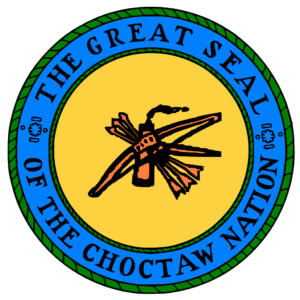
The FAA today announced a groundbreaking partnership with the Choctaw Nation to determine how drones can best transport cargo—including parcels—at lower altitudes.
The agency’s Mike Monroney Aeronautical Center (MMAC) signed a three-year agreement with the Oklahoma-based Native tribe that will enable the center to study human factors, supply chain management and air-traffic control as they each relate to drone tech.
“The parties will use virtual simulated urban environments for their research,” an FAA statement noted. “One goal of the [agreement] is to promote interest in science, technology, engineering and mathematics programs for students seeking possible careers in aerospace.”
“The FAA and the Choctaw Nation share an interest in safety,” said Michelle Coppedge, Director of the MMAC. “Our goal is to advance the development and integration of UAS into what is already a complex National Airspace System.”
”The MMAC plays a critical role in ensuring the safety of aviation operations in our nation, and we are excited to establish formal ties between our organizations to jointly support the development and safe integration of emerging aviation technologies into our national airspace system,” said James L Grimsley, Executive Director of Advanced Technology Initiatives with the Choctaw Nation of Oklahoma.
According to the FAA, the Choctaw Nation is the only tribal government selected by the U.S. transportation department to participate in the Unmanned Aerial System Integration Pilot Program—one of nine active pilot sites selected to work in collaboration with the FAA and industry to conduct advanced drone operations.
A first for the Choctaw Nation
The Choctaw Nation is the first tribal government to be recognized by the FAA as a Public Aircraft Operator and the only lead participant to work with the Volpe National Transportation Systems Center on acoustics testing for drones for use in agriculture, remote infrastructure inspections and public safety.
The FAA noted:
“More than 6,300 employees, contractors and students work at the FAA’s aeronautical center, which is located on the west side of Will Rogers World Airport in Oklahoma City. The center touches every aspect of the nation’s airspace by providing training, supply chain management, medical/educational human factors research and the national registration database of all U.S.-registered aircraft and pilots. It also offers financial management and acquisition services for a wide array of federal agencies.”
FAA and drones
The announcement comes just days after the FAA announced the selection of five American airports to evaluate technologies that could detect and mitigate potential safety risks posed by rogue drones.
In February, the agency announced an open application period for the role of test administrators the federal agency’s Recreational UAS Safety Test (TRUST).
“The FAA will designate qualified third parties to administer the test and make it accessible to all recreational drone flyers,” an agency release stated. “Entities involved with recreational pilots such as educational institutions, manufacturers and aeromodelling organizations are encouraged to apply.”
Jason is a longstanding contributor to DroneLife with an avid interest in all things tech. He focuses on anti-drone technologies and the public safety sector; police, fire, and search and rescue.
Beginning his career as a journalist in 1996, Jason has since written and edited thousands of engaging news articles, blog posts, press releases and online content.
Email Jason
TWITTER:@JasonPReagan
Subscribe to DroneLife here.







[…] they’ve executed so on a a lot deeper stage than most. They labored with the FAA to find out how drones can best transport cargo at decrease altitudes however had been additionally the one lead participant to work with the Volpe […]